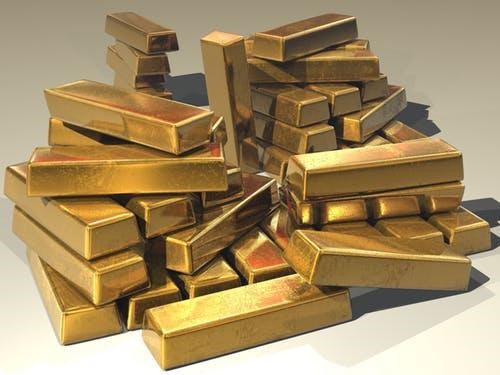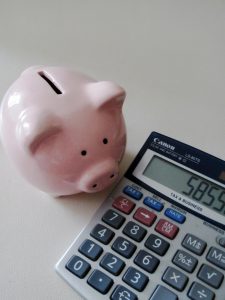Source: Pexels.Com
Precious metals have significant economic value. They are rare metals with different uses that make them great for investments. There are 12 types of precious metals and 4 of which are considered to be the most valuable. The precious metals that are are most in demand include gold, silver, and platinum.
Invest in Gold or silver?
The average precious metal investor prefers to invest in gold rather than silver. Gold is used for hoarding and adornment. Many people use it to hedge against the dollar.
While both gold and silver have industrial uses, demand for silver in industries is more than demand for gold. Many central banks around the world use gold. Approximately $3 trillion in gold is owned by central banks. In the first six months of 2019, central banks purchased over $15 billion worth of gold. Central banks now hold 34,000 tonnes of gold.
As an investment, gold is free of VAT. In contrast, silver and other precious metals are not free of value added tax. If the metal is in an accredited vault in an allocated account, one may avoid paying VAT.
2. What Is the Best Way to Invest in Precious Metals?
There are different ways to invest in precious metals. The different methods of precious metal investment expose investors to different measures of risk. Investors are encouraged to take great lengths to consider the benefits and potential disadvantage ages of using the different mediums of precious metal investment.
3. What about buying through eBay?
When it comes to making purchases online, platforms like eBay can present challenges in terms of trust. It isn’t always easy to know who you are really dealing with at the other end of the screen.
Providing you can trust a seller, eBay can provide options to purchase collectible coins as well as other types of precious metal items. You may have to make considerable effort to ensure that the product being sold is genuine.
4. How Do You Store and Insure Your Precious Metals?
Investors may have to spend extra money to store and insure their physical precious metals. For $700 – $1,000 , a safe can be installed in your home to store your precious metals. It is best to purchase safes that have been given good ratings. Such safes may cost more than other safes.
Precious metals may be added to the contents policy. This can cost additional premium. Proof of purchase will be required to make a claim for the precious metals.
5. Bullion Coins or Bullion Bars?
In many cases, bullion bars prove to be easier to buy and sell than bullion bars. Half a stash of bullion coins can be sold more easily than half a gold bar. Coins are divisible, allowing for easier transfer of value.
It is also important to consider the weight and fabrication costs of bars. Larger gold are usually priced lower due to smaller fabrication costs associated with them. Gold bars usually cost less than smaller weight gold coins.
6. What are the Differences Between Bullion Coins?
Bullion coins come in different varieties. Types of bullion coins include the Isle of Man Angels, Chinese Pandas, and Canadian Maple Leafs. Bullion coins may be available in silver and platinum , which many governments have a penchant for.
7. What are the Different Types of Precious Metals?
There are different types of precious metals that exist, providing new use cases for individuals and groups in different sectors. Gold is the most popular precious metal, followed by silver.
Gold attracts the most attention from investors. It is used for different purposes in industries. Central banks around the world use gold as part of their policy objectives.
Silver is a hybrid metal, providing benefits that different metals present. It is a byproduct of lead, zinc, copper, and other metals. While it is not as sought after as gold, it proves to be useful for industrial purposes.
Source: Pexels.com
8. Are Stocks Better than Precious Metals?
Stocks provide advantages which precious metals do not provide. Unlike precious metals, dividends can be made from stocks, allowing for extra income without selling the asset.
Conversely, the income from precious metals is typically gained after making selling the asset. While this may seem like a significant disadvantage of owning precious metals, investors should be reminded of the fact that there are risks associated with owning stocks which owners of precious metals are not exposed to.
9. What are the Tax Implications of Investing in Precious Metals?
Active precious metal investors may be treated as businesses with their profits being taxed as income. Precious metals may be subject to maximum 28% capital gains tax.
It is important to consult with a tax professional in order to gain deep understanding of the nuances of tax laws in relation to precious metal investments. There are different ways to reduce tax obligations which a tax professional can shed light on.
10. Who Should You Buy Precious Metal From?
Precious metals can be obscure in appearance at times with different processes having to be executed to ensure authenticity of the seller and the item. Trusted organizations like Lear Capital make the process of purchasing and selling precious metals seamless, with expert customer service representatives ready to add value to your investment decisions.
To learn more about the quality service provided by Lear Capital for precious metal investors, you may read the reviews of the organization which has handled $3 billion in precious metals investments.
Read More:
Safeguarding Your Future: A Comprehensive Review Of Augusta Precious Metals











